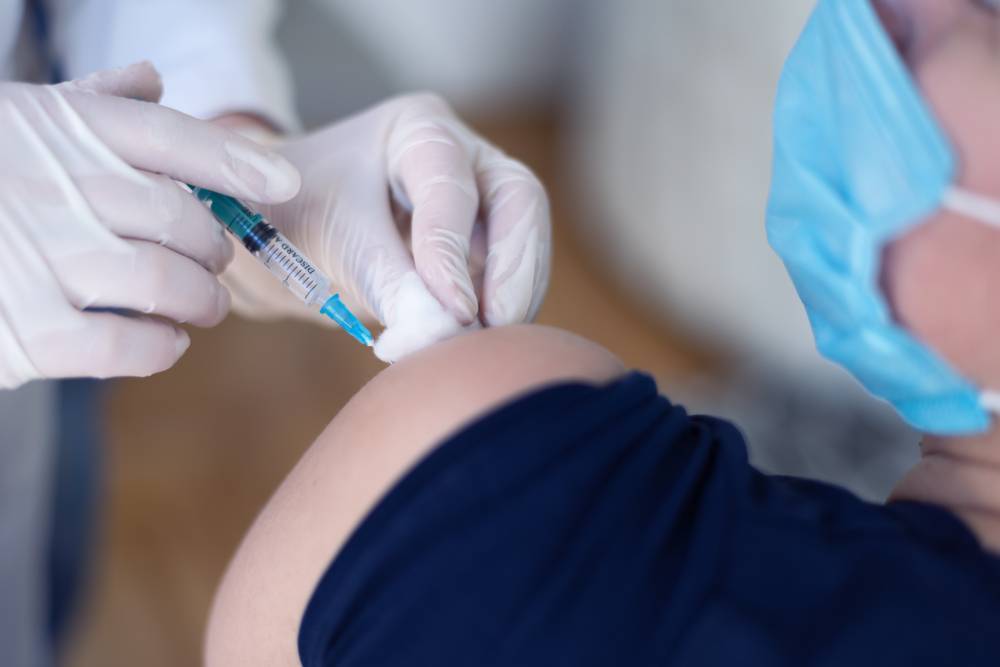Globally, 64.2% of the world population has received at least one dose of a COVID-19 vaccine. In Asia, more than 7.6 billion doses have been given so far, that’s 164 doses per hundred people. Many countries in Asia and across the world rolled out their third dose (or first booster) vaccination scheme from late 2021. So far, more than 70% of the population in Singapore, 63% of population in South Korea, 36% of population in China and 35% of population in Japan have had their third dose. However, as more news have emerged on a potential fourth dose of COVID shots, what do we know about it?
What are the available options for a fourth dose vaccine?
Both Pfizer and Moderna have asked the Food and Drug Administration (FDA) of the US in mid-March to authorise a second booster. While Pfizer’s application aimed at people ages 65 or older, Moderna sought approval of the second booster for all adults. The moves come amid signs that the US and many region in Asia are experiencing a spike in cases due to the spread of the BA.2 subvariant of Omicron. So far, the FDA has not made a decision on whether to decline or approve the request submitted by either companies.
Has any country authorised a fourth dose yet?
According to Dr Leong Hoe Nam, infectious disease specialist from Rophi Clinic in Singapore, the recommendation for the fourth dose vaccine (or the second dose mRNA booster) resulted from 3 different trials earlier with benefits in those aged 60 and above. These were mortality benefits with 78% in the Israeli study ie 78% lower incidence of death in those who administered the 4th dose vs those with only the 3rd dose. This was also likely the reason why Israel was the first country in the world to start offering it starting 2 January 2022.
In the Asia-Pacific region, Mongolia started its fourth dose regime as early as 7th January 2022, being the first country to do so in Asia.
South Korea started its fourth disease of COVID-19 vaccines in February for adults who are immunocompromised, or live/work at care centres.
Japan’s health ministry subcommittee has agreed on the 24th of March to start preparing to administer fourth dose.
Singapore’s Health minister Ong Ye Kung said on 25th of March that people aged 80 and above, as well as people with chronic conditions, can get a fourth dose of COVID-19 vaccination. However, there is no plan to extend the policy to other social groups as of yet.
Australia recommends the fourth dose for people over the age of 65 and those who are immunocompromised on 25th of March, citing the threat from the incoming winter flu season in southern hemisphere.
Is the fourth dose safe or effective?
So far, very limited clinical data has been made available due to the limited number of people who have had their 4th dose. The clinical study published by the research group in Israel investigated the immunogenicity and safety of a fourth dose of either Pfizer or Moderna administered 4 months after the third dose vaccine.
After the fourth dose, both vaccines induced IgG antibodies against the virus receptor and increased neutralizing antibody titres. Each measure was increased by a factor of 9 to 10, to a level that was slightly higher than those achieved after the third dose.
The research also concluded that the fourth dose did not lead to substantial adverse events. Mild systemic and local symptoms, such as fever, lethargy or pain at injection site in majority of recipients were congruent with existing known side effects of these vaccines’ administration.
Recommendations for the fourth dose
According to Dr Leong, the necessity of the fourth COVID vaccine dose boils down to three important factors:
- Age: Those aged 60 and above will benefit. We do not know yet if those younger than 50 will.
- Immunocompromised individuals or those with chronic medical conditions: these include individuals with ischaemic heart diseases, chronic renal or liver diseases, (poorly controlled) diabetes mellitus, obesity, cancer patients and patients on immunosuppressive treatment eg. steroids. These individuals will benefit.
- Three months have elapsed from your last dose: the longer the duration between your last booster (third dose), the more likely you will benefit.
The clear-cut benefit is in those who satisfy all the above 3 conditions, or who are very elderly (more than 90), or have severely immunosuppressed medical conditions. Because, it is also these individuals who are likely to fall sick and have more severe disease.
In Dr Leong’s own words, “We shouldn’t think of the second booster as a necessity for everyone. Rather, think of the booster as an extra coaching session for some amongst us who have poorer immunity that needs more training.”

